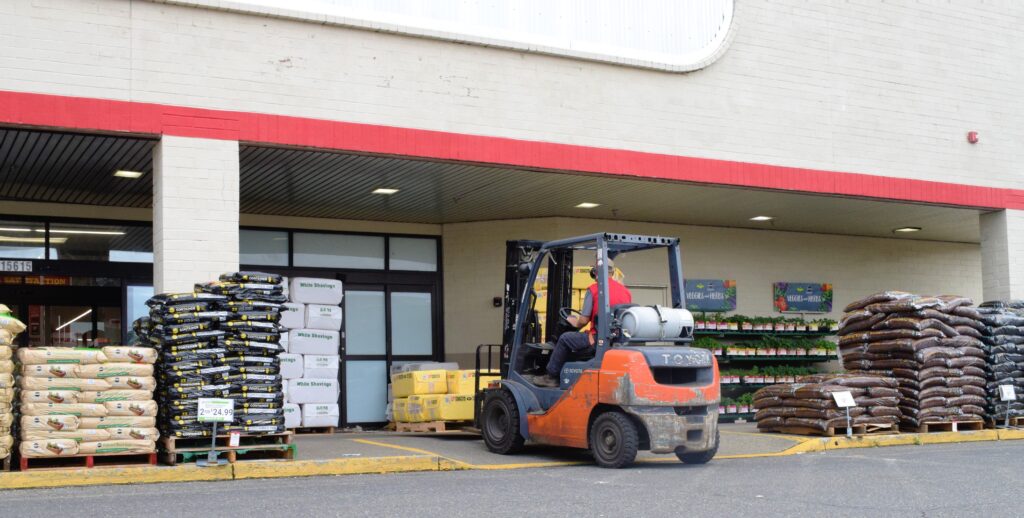Comparative Analysis: Multi-Directional vs Traditional Forklifts
Across a wide range of industries, forklifts are of critical importance. Reliable, adaptable and efficient, they simplify the material handling process or ease the transportation of heavy goods.
Because of the variety of demands and requirements across these industries, a number of models are now available.
Each model or type of forklift has unique features and advantages; some are better suited to carrying heavier loads whilst others have advanced manoeuvrability.
In today’s article, we are taking a closer look at two of the most popular trucks. We want to pit multi-directional and traditional forklifts together, determining which is superior and where each model is best suited.
Understanding Traditional Forklifts
Before we delve in and make a comparison, we first want to ensure everyone is aware of the characteristics and limitations of each model.
A traditional forklift, therefore,is an industrial vehicle equipped with forked platforms. Typically powered by fuel or electric engines, they are instrumental in the process of moving or transporting heavy loads.
You would expect to find a forklift in any environment where heavy goods, products or materials need to be moved or loaded. Common examples include warehouses, construction sites, distribution centres and airports.
Whilst the traditional forklift does optimise the material handling process, this type of truck does have some limitations. Common limitations include:
- Limited weight capacity
- Reduced manoeuvrability in tight spaces
- The requirement of specialist training
The last point is a limitation that exists across the entire spectrum of models. The proceeding two, however, are unique to traditional forklifts and encourage people to seek out other solutions. More below.

Exploring Multi-Directional Forklifts
Next we have the multi-directional forklift. Unlike a traditional truck, these vehicles have a unique design which allows them to move in multiple directions. This includes sideways.
Featuring a unique wheel configuration and a rotating cabin, they can effortlessly navigate, and work in, confined spaces.
Where traditional models fail, the multi-directional forklift succeeds. Their adaptability truly shines in tight aisles, enabling operators to handle, move or load awkwardly shaped materials with ease.
In automotive warehouses, lumber yards and complex warehouses, these trucks are often the preferred choice. Irregularly shaped materials or products can be moved with greater efficiency, boosting the productivity of the entire workforce.
A Comparative Breakdown
For our comparative breakdown, we are going to look at a few points. These include:
- Functionality
First, let us examine functionality. Both forklifts are capable of optimising and improving the material handling process. They do, however, have differing functionality which makes them suited to contrasting environments.
Traditional forklifts move forward and backward, which is best suited for open spaces, while multi-directional forklifts manoeuvre sideways as well. This means they excel in tight spaces and narrow aisles, which a traditional truck may struggle with.
- Maintenance Cost
Maintenance cost is another contentious issue, with the price between the two differing. Traditional forklifts tend to be lower due to their simpler design, while multi-directional forklifts, with more complex mechanisms, might require more ongoing maintenance and support.
- Price
Price will vary significantly, with newer models costing more. The engine type will influence the price too, with electric powered trucks likely to be marketed at a higher price.
Generally speaking, traditional forklifts are cheaper to source. Production of this type of truck is easier as it features less complex mechanisms.
Consider Your Needs
Whilst this breakdown offers some insight, the choice is ultimately yours. We encourage you to consider operational needs, space constraints, manoeuvrability requirements and how much your organisation is able to invest.
We have a wide range of forklifts available, including a variety of new and used multi-directional forklift trucks. Offering competitive pricing and unmatched product quality, we can confidently deliver the UK’s best logistics solutions.
To find out more or for product enquiries, contact a member of our team today.
